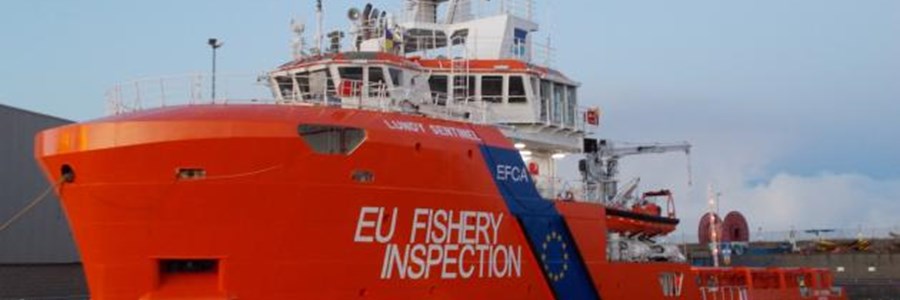Step in the right direction on the revision of fisheries control rules

Yesterday, the European Parliament Committee on Fisheries voted on more than a thousand amendments on a new set of rules meant to revise the Union Fisheries Control System. In general terms, the Parliament position improves the proposal from the European Commission modernising and simplifying the control and enforcement measures adopted back in 2009 without creating unnecessary economic and bureaucratic burdens to the fishing industry. The sector appreciates these efforts although still some remaining issues in the Commission’s proposal must be addressed. In this context, Europêche hopes that the agreement found in the Fisheries Committee stands in the upcoming Parliamentary Plenary session.
Crucial decisions have been taken last night to make decisive progress towards a new EU control system. The European Parliament has enhanced traceability of seafood products, digitised tracking and catch reporting across the value chain and harmonised sanctions and enforcement measures across Member States. This will create a true level playing field on EU control efforts so all fishers are fairly and equally treated.
Europêche welcomes the Fisheries Committee proposal to introduce cameras on board fishing vessels (CCTV) on a voluntary provided that an incentive such as catch quota uplifts or freedom of choice of method in conducting a fishery is granted by the competent authority. Alternatively, fishing vessels shall equip CCTV technology on a temporary and mandatory basis provided that they have committed two or more serious infringements, as an accompanying sanction.
Daniel Voces, managing director of Europêche, declared: “We favour the use of high-tech remote electronic monitoring tools to modernise data management and enhance compliance. However, the introduction of intrusive technologies such as cameras clearly clash with business confidentiality, privacy and workers’ rights. The introduction of CCTV must therefore be done step by step, with incentives and in close cooperation with the industry as suggested by the Fisheries Committee”.
The Parliament also limits the mandatory introduction of monitoring of engine power devices to vessels that operate in areas subject to fishing effort regimes or restrictions on engine power. According to Europêche, the rationale behind this approach is clear: “in fisheries subject to catch limits, the size or power of the boat does not matter, it will always be limited by the allocated quota”. However, Europêche regrets the increased bureaucracy specially for the fleets operating in the Mediterranean.
In line with the Commission, the Parliament supported the idea that from now on all quantities of each species caught and kept on board, even below 50 kg, must be recorded. The small-scale fishermen represented by Europêche are disappointed with the removal of that threshold which will exponentially increase the red-tape and working hours of fishers.
The Fisheries Committee, however, has introduced more flexibility on the estimates recorded in the fishing logbook for each species which are extremely difficult to match with the quantities actually landed. Europêche appreciates the introduction of higher margins of tolerance for mixed, small pelagic and industrial fisheries, for species retained on board that do not exceed 100kg and for tuna species.
Other important control measures such as the weighing of fishery products, vessel monitoring systems, electronic logbook, traceability, prior notification of landing, transhipment operations, stowage of demersal catches, transport, enforcement measures, point system and recreational fisheries have been decided by previous compromises between political groups. Europêche welcomes the flexibility provided by these agreements in terms of timing, scale and bureaucracy thus showing closer ties with the fisheries reality.
Mr Voces concluded, “The current EU fisheries control system is one of the most advanced in the world and has undoubtedly contributed to step up compliance with the Common Fisheries Policy and to the sustainable management of our fish stocks. Our fishermen do not need more red-tape but clear and efficient rules uniformly applied across the EU to guarantee equal treatment, reduce costs and make their life easier.”
Sources: Europêche
Tags: fisheries control, european commission, fishing industry, traceability, seafood products, value chain, level playing field, CCTV, infringements, sactions, remote electronic monitoring, engine power, fishinf effort regime, fishermen, fishing logbook, common fisheries policy